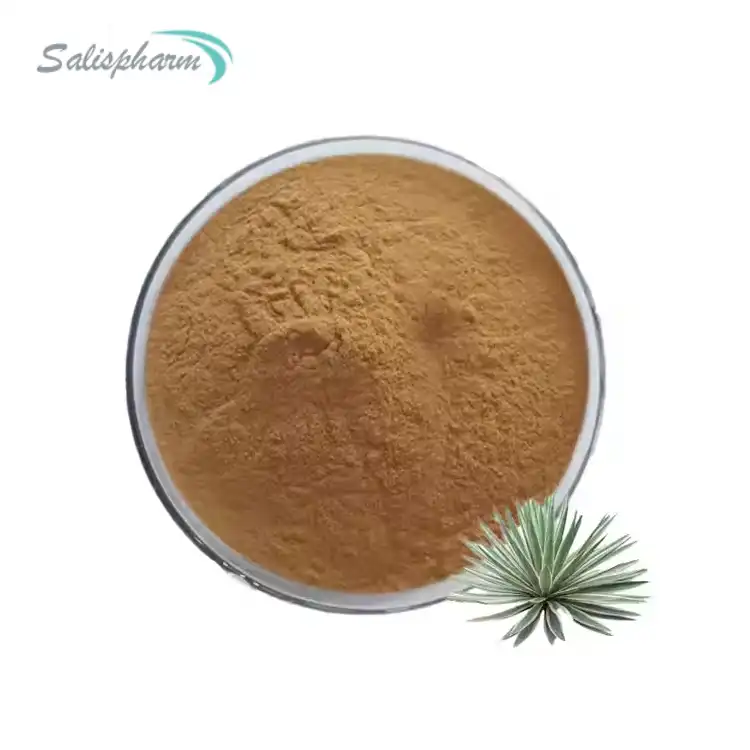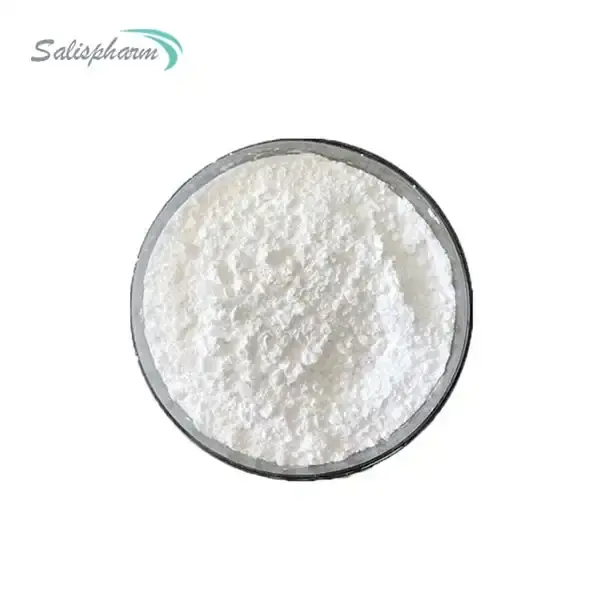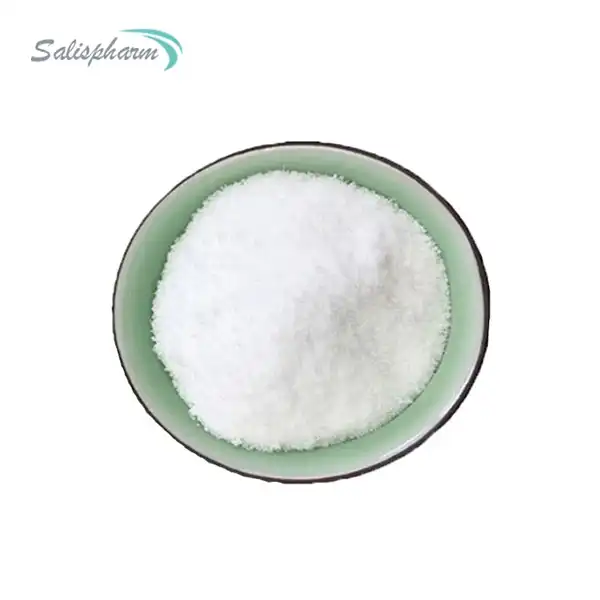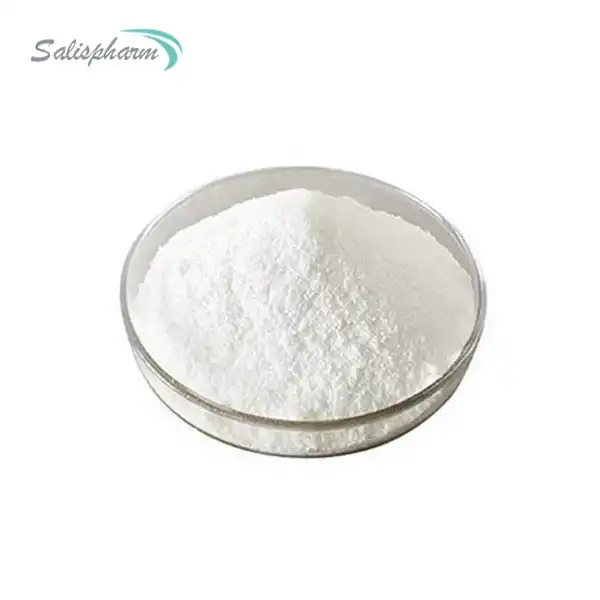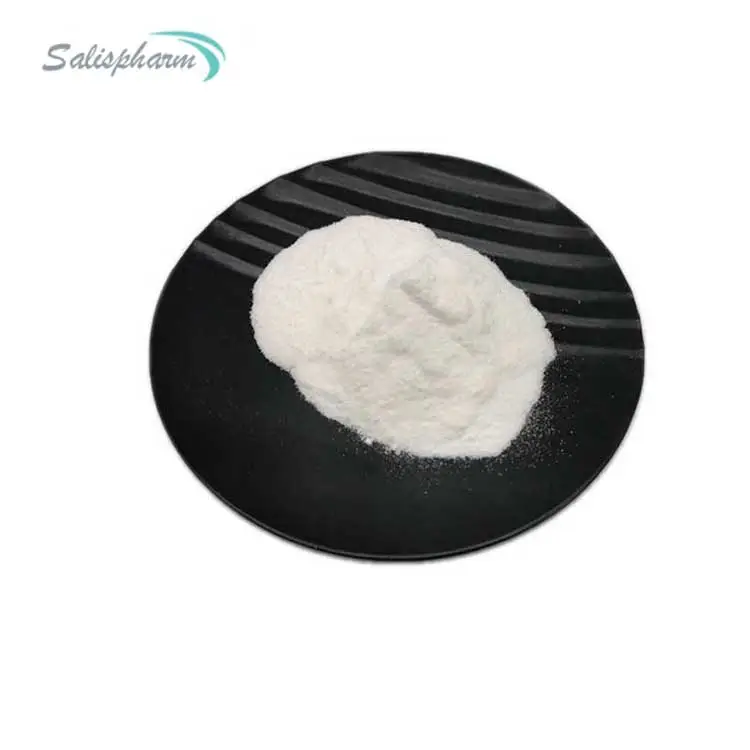Aspirin powder, also known as acetylsalicylic acid in its powdered form, is a versatile and widely used medication. It belongs to a class of drugs called nonsteroidal anti-inflammatory drugs (NSAIDs) and has been a staple in medicine cabinets for over a century. Aspirin powder is known for its ability to relieve pain, reduce fever, and decrease inflammation in the body. Its effects stem from its ability to inhibit the production of prostaglandins, which are substances in the body responsible for pain, fever, and inflammation. While most people are familiar with aspirin in tablet form, the powdered version offers unique advantages in terms of rapid absorption and versatility in application.
How is pure aspirin powder different from regular aspirin tablets?
Pure aspirin powder differs from regular aspirin tablets in several key aspects, primarily in its form, absorption rate, and versatility of use. Understanding these differences can help users make informed decisions about which form of aspirin best suits their needs.
Firstly, the most obvious difference lies in the physical form. While aspirin tablets are compressed into solid, easy-to-swallow pills, pure aspirin powder is a fine, crystalline substance. This powdered form allows for greater flexibility in dosing and administration methods. Users can measure out precise amounts of powder, which can be especially useful for those who require doses that differ from standard tablet sizes.
The absorption rate is another significant difference between aspirin powder and tablets. When ingested, aspirin powder tends to be absorbed more quickly by the body compared to tablets. This is because the powder does not need to be broken down in the digestive system before the active ingredient can be absorbed. As a result, users may experience faster relief from pain or fever when using the powder form. This rapid absorption can be particularly beneficial in situations where quick action is needed, such as at the onset of a migraine or during a fever spike.
Versatility in application is a key advantage of aspirin powder. While tablets are primarily designed for oral consumption, aspirin powder can be used in various ways. It can be dissolved in water or other liquids for oral intake, which may be easier for some people to swallow compared to tablets. Additionally, aspirin powder can be used topically in certain situations. For example, it can be mixed into a paste with water and applied directly to the skin for localized pain relief or to treat certain skin conditions. This versatility makes aspirin powder a more adaptable option for different needs and preferences.
However, it's important to note that the use of pure aspirin powder requires more careful measurement and handling compared to pre-dosed tablets. Users must be cautious to measure the correct amount, as it's easier to accidentally take too much when dealing with a powder form. This is particularly crucial because aspirin, like all medications, can have side effects and risks if not used properly.
The storage and shelf life of aspirin powder may also differ from tablets. Powder can be more susceptible to moisture and air, which can affect its stability and efficacy over time. Proper storage in an airtight container in a cool, dry place is essential to maintain its potency and safety.
In terms of availability, aspirin tablets are more commonly found in pharmacies and stores, while pure aspirin powder may be less readily available to the general public. This is partly due to the increased potential for misuse or accidental overdose with the powder form.
Lastly, the taste and palatability can differ. Aspirin tablets often have a coating that masks the bitter taste of the medication, while pure aspirin powder has a strong, bitter flavor that some may find unpleasant. This can be mitigated by mixing the powder with flavored liquids or foods, but it's an important consideration for those sensitive to taste.
In conclusion, while both forms contain the same active ingredient, pure aspirin powder offers advantages in terms of rapid absorption, dosing flexibility, and versatility of application. However, it also requires more careful handling and measurement. The choice between powder and tablets often comes down to individual needs, preferences, and the specific situation in which the aspirin will be used.
What are the benefits of using pure aspirin powder for pain relief?
Pure aspirin powder offers several distinct benefits for pain relief, making it a preferred choice for many individuals seeking quick and effective management of various types of pain. Understanding these benefits can help users make informed decisions about incorporating aspirin powder into their pain management regimen.
One of the primary benefits of using pure aspirin powder for pain relief is its rapid onset of action. When ingested, the powder form of aspirin is absorbed more quickly into the bloodstream compared to tablets. This is because the powder doesn't require the additional time needed for a tablet to break down in the digestive system. As a result, users often experience faster relief from pain, which can be particularly beneficial for conditions that require immediate attention, such as headaches, menstrual cramps, or acute injuries.
The versatility in dosing is another significant advantage of aspirin powder. Unlike pre-dosed tablets, powder allows for more precise control over the amount of medication taken. This can be especially useful for individuals who require doses that fall between standard tablet sizes or for those who need to adjust their dosage based on the severity of their pain. The ability to fine-tune dosages can lead to more effective pain management while potentially reducing the risk of side effects associated with taking more medication than necessary.
Aspirin powder's versatility extends beyond just oral consumption. It can be used topically for localized pain relief, which is not typically possible with standard tablets. When mixed with a small amount of water to form a paste, aspirin powder can be applied directly to areas of pain or inflammation, such as joints affected by arthritis or areas with minor skin irritations. This topical application allows for targeted pain relief without systemic effects, which can be beneficial for those who are sensitive to oral NSAIDs or who want to avoid potential gastrointestinal side effects.
For individuals who have difficulty swallowing pills, aspirin powder presents a more manageable alternative. The powder can be easily dissolved in water or other liquids, making it easier to consume for those with swallowing issues or for children who may struggle with tablets. This ease of administration can improve compliance with pain management regimens, leading to more consistent and effective relief.
Aspirin powder's anti-inflammatory properties make it particularly effective for treating pain associated with inflammation, such as that caused by arthritis, tendinitis, or minor injuries. The powder form allows for quicker absorption of the active ingredient, potentially leading to faster reduction of inflammation and, consequently, more rapid pain relief.
Another benefit of aspirin powder is its potential for use in combination with other treatments. For example, it can be mixed with other topical pain relievers or incorporated into homemade pain-relieving solutions. This flexibility allows users to create customized pain management approaches that suit their specific needs and preferences.
The cost-effectiveness of aspirin powder can also be a significant benefit for some users. Purchasing aspirin in powder form can often be more economical than buying pre-dosed tablets, especially for those who use aspirin regularly or in varying doses. This can make long-term pain management more affordable and accessible.
It's worth noting that aspirin powder's effectiveness in pain relief extends beyond just treating the symptoms. Like other forms of aspirin, the powder also has blood-thinning properties, which can be beneficial in preventing heart attacks and strokes in at-risk individuals. However, this blood-thinning effect should be considered carefully, especially for those with bleeding disorders or those taking other blood-thinning medications.
While the benefits of using pure aspirin powder for pain relief are numerous, it's crucial to emphasize the importance of proper use and dosage. The ease of measuring powder can also lead to the risk of taking too much if not done carefully. Users should always follow recommended dosages and consult with a healthcare provider before starting any new pain management regimen, especially if they have pre-existing health conditions or are taking other medications.
In conclusion, pure aspirin powder offers significant benefits for pain relief, including rapid onset of action, dosing flexibility, versatility in application, ease of use for those with swallowing difficulties, and cost-effectiveness. Its ability to provide quick, targeted relief makes it a valuable option in many pain management scenarios. However, as with any medication, it should be used responsibly and under appropriate guidance to ensure safe and effective pain relief.
Can aspirin powder be used for other purposes besides pain relief?
While aspirin powder is primarily known for its pain-relieving properties, its versatility extends far beyond just managing aches and pains. This multifaceted medication has a wide range of applications, both medicinal and non-medicinal, making it a valuable substance in various fields. Understanding these alternative uses can help users appreciate the full potential of aspirin powder and possibly find new ways to incorporate it into their health and wellness routines.
One of the most significant alternative uses of aspirin powder is in cardiovascular health. Low-dose aspirin therapy has long been recognized for its ability to reduce the risk of heart attacks and strokes in certain individuals. The antiplatelet properties of aspirin help prevent blood clots from forming, which can be life-saving for those at high risk of cardiovascular events. While this use is typically associated with aspirin tablets, the powder form can be used to create precise, low doses that may be more suitable for some individuals. However, it's crucial to note that aspirin therapy for cardiovascular health should only be undertaken under the guidance of a healthcare professional, as it's not appropriate for everyone and can have side effects.
In dermatology, aspirin powder has found several applications. When mixed with water to form a paste, it can be used as a spot treatment for acne. The salicylic acid in aspirin helps exfoliate the skin, unclog pores, and reduce inflammation associated with pimples. Some people also use aspirin masks for overall skin exfoliation and to improve skin texture. Additionally, aspirin's anti-inflammatory properties make it useful in treating minor skin irritations, such as insect bites or mild sunburns.
Aspirin powder has also shown potential in managing certain types of cancer. Some studies suggest that regular aspirin use may reduce the risk of colorectal cancer and potentially other types of cancer. While more research is needed in this area, the anti-inflammatory properties of aspirin are thought to play a role in this potential cancer-fighting effect. It's important to stress that aspirin should not be used as a cancer treatment or preventive measure without medical supervision.
In the realm of plant care, aspirin powder has gained popularity among gardeners. When dissolved in water and used as a spray, it can help boost plants' natural defense systems against diseases and pests. Some gardeners use aspirin solutions to improve seed germination rates, enhance root development, and increase overall plant vigor. This application capitalizes on aspirin's ability to mimic salicylic acid, a compound naturally produced by plants in response to stress.
Aspirin powder has found its way into beauty and personal care routines as well. Some people use it as a natural remedy for dandruff when mixed with shampoo, leveraging its exfoliating properties to remove dead skin cells from the scalp. Others incorporate it into homemade face masks or scrubs for its potential skin-brightening effects.
In veterinary medicine, aspirin powder can sometimes be used for pain relief in certain animals, particularly dogs and cattle. However, it's crucial to note that aspirin can be toxic to some animals, such as cats, and should never be administered to pets without veterinary guidance.
Aspirin powder has also been explored for its potential preservative properties. Some studies have shown that it can help extend the shelf life of cut flowers when added to the water in small amounts. This effect is attributed to aspirin's ability to inhibit ethylene production, a plant hormone that accelerates aging in cut flowers.
In the realm of alternative medicine, aspirin powder has been investigated for its potential role in managing migraines. Some individuals find that taking aspirin at the first sign of a migraine can help prevent the full onset of symptoms. The powder form may be particularly useful in this context due to its rapid absorption.
Aspirin powder has even found applications in household cleaning. Its mild acidic properties make it useful for removing certain types of stains, particularly those caused by perspiration or other bodily fluids. When mixed with water and applied to stains before washing, it can help break down the proteins that cause discoloration.
Lastly, in scientific research and education, aspirin powder is often used as a model compound for teaching and demonstrating various chemical principles. Its relatively simple structure and well-understood properties make it an ideal subject for experiments in organic chemistry, pharmacology, and related fields.
While these alternative uses of aspirin powder demonstrate its versatility, it's crucial to approach any non-standard use with caution. Many of these applications, particularly those involving ingestion or application to the skin, should be discussed with a healthcare provider before attempting. Aspirin, even in powder form, can interact with other medications and may not be suitable for everyone.
In conclusion, aspirin powder's utility extends far beyond pain relief. From cardiovascular health to plant care, skincare to household uses, this versatile substance has found its way into various aspects of health, wellness, and daily life. However, as with any active compound, it's essential to use aspirin powder responsibly and under appropriate guidance to ensure safety and efficacy in its various applications.
If you are also interested in this product and want to know more product details, or want to know about other related products, please feel free to contact iceyqiang@aliyun.com.
References:
1. Vane, J. R., & Botting, R. M. (2003). The mechanism of action of aspirin. Thrombosis Research, 110(5-6), 255-258.
2. Rothwell, P. M., et al. (2011). Effect of daily aspirin on long-term risk of death due to cancer: analysis of individual patient data from randomised trials. The Lancet, 377(9759), 31-41.
3. Gaziano, J. M., & Ridker, P. M. (2008). Primary and secondary prevention of coronary heart disease. Braunwald's Heart Disease: A Textbook of Cardiovascular Medicine, 8, 1119-1148.
4. Raskin, I. (1992). Role of salicylic acid in plants. Annual Review of Plant Biology, 43(1), 439-463.
5. Schrör, K. (2016). Acetylsalicylic acid. John Wiley & Sons.
6. Patrono, C., et al. (2005). Low-dose aspirin for the prevention of atherothrombosis. New England Journal of Medicine, 353(22), 2373-2383.
7. Derry, S., & Moore, R. A. (2013). Single dose oral aspirin for acute postoperative pain in adults. Cochrane Database of Systematic Reviews, (7).
8. Gilroy, D. W., et al. (1999). Inducible cyclooxygenase may have anti-inflammatory properties. Nature Medicine, 5(6), 698-701.
9. Cuzick, J., et al. (2015). Estimates of benefits and harms of prophylactic use of aspirin in the general population. Annals of Oncology, 26(1), 47-57.
10. Klessig, D. F., et al. (2018). Aspirin and salicylic acid: old and new perspectives. Journal of Experimental Botany, 69(10), 2459-2466.



